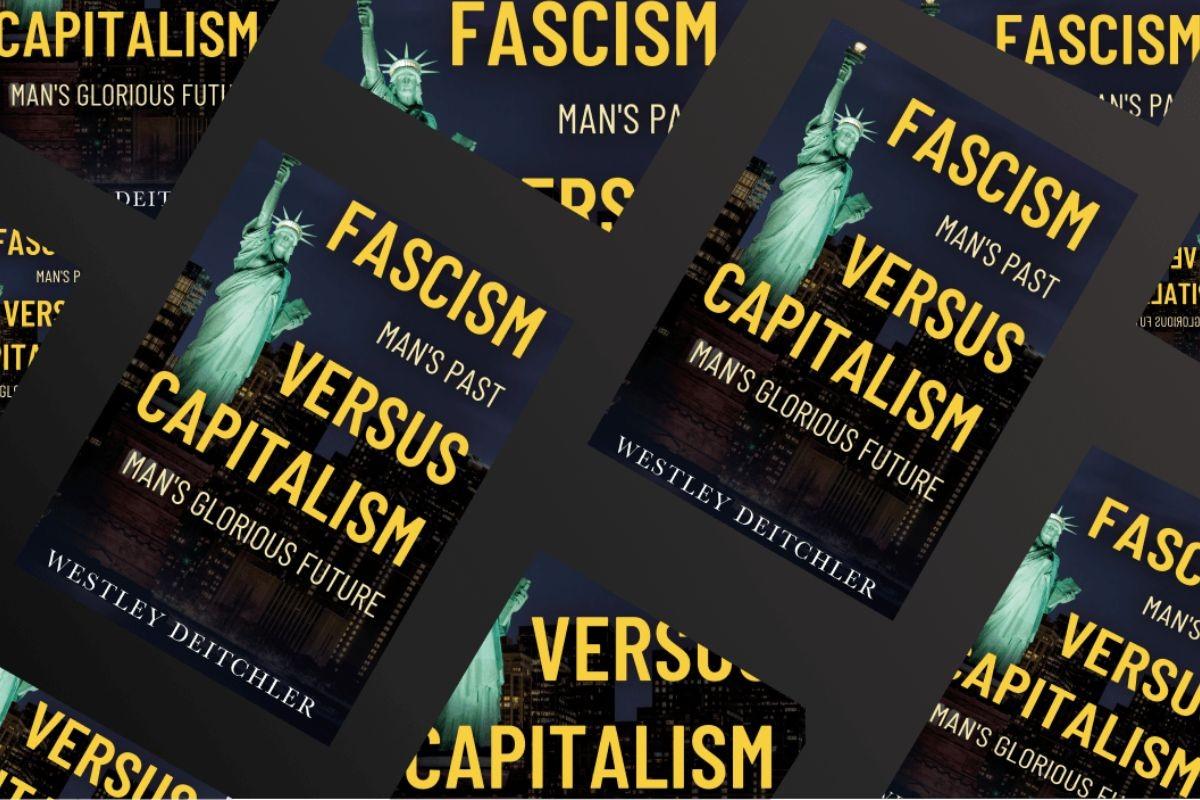Westley F. Deitchler: The Advocate for True
Freedom and the End of Government Coercion
Westley F. Deitchler is a voice of dissent in a world that often equates democracy and regulation with freedom. In his provocative work, Fascism, Man’s Past versus Capitalism, Man’s Glorious Future, Deitchler presents a radical critique of modern society, urging readers to rethink their acceptance of government authority, monetary systems, and even the concept of democracy itself. For Deitchler, true freedom cannot coexist with coercive government structures that restrict individual autonomy. His ideas are both challenging and inspiring, aimed at creating a society where personal liberty is the highest value, and voluntary trade replaces the coercive hand of the state.
A Vision Beyond the Political Norm
Westley F. Deitchler political philosophy is not easily categorized within conventional political lines. He rejects the modern systems of governance as inherently oppressive, calling them “multilevel terrorist fascist crime syndicates” (p. 11) that use regulations and taxation to control citizens. Deitchler’s view is that most government systems—regardless of whether they are labeled as democratic or authoritarian—are forms of control that violate individual rights. He suggests that these systems create an illusion of freedom while subtly enforcing conformity and dependence.
Deitchler’s central tenet is that freedom is not granted by governments; it is an inherent right that must be claimed and defended by individuals. He urges people to move beyond the confines of the political spectrum and embrace a philosophy rooted in individual sovereignty, where each person has the autonomy to make their own choices and live without coercive interference.
A Critique of Modern Democracy
One of Deitchler’s most controversial stances is his critique of democracy itself. While many see democracy as the most just form of government, Deitchler argues that it is fundamentally flawed because it relies on the principle of majority rule, which often sacrifices the rights of individuals for the will of the majority. He writes, “Democracy is the way violence is organized and used in society” (p. 6), emphasizing that the majority can become a tyrant in its own right, imposing its will on individuals who may disagree.
For Deitchler, democracy is not synonymous with freedom. Instead, he believes that the true measure of a just society is how well it protects the rights of each individual, regardless of popular opinion. He advocates for a system that prioritizes individual rights above all else, where laws exist not to enforce conformity but to protect personal freedom. This view challenges the deeply ingrained belief that democracy is the ultimate safeguard of liberty and pushes readers to reconsider what true freedom looks like.
The Need for a New Monetary System
In Fascism, Man’s Past versus Capitalism, Man’s Glorious Future, Deitchler also addresses what he sees as the fundamental flaws of the current monetary system. Central to his critique is the concept of fiat currency—money that is not backed by a tangible commodity like gold or silver but is instead supported solely by government decree. Deitchler calls this a “counterfeit money system” (p. 23) that enables governments to manipulate the economy, inflate the currency, and erode personal wealth without accountability.
He argues that the Federal Reserve, as the central bank of the United States, has unparalleled power to influence the economy through its control of the money supply, leading to cycles of inflation and economic instability. This manipulation, according to Deitchler, disproportionately benefits those in power and the financial elite, while average citizens bear the burden of devalued currency and rising living costs. To combat this, he advocates for a return to a sound money system, where currency is tied to tangible assets, ensuring that money retains its value and cannot be arbitrarily devalued by the state.
Voluntary Trade: The Foundation of True Capitalism
Deitchler’s solution to government overreach and economic manipulation is a return to voluntary trade and radical capitalism. He envisions a society where free-market principles are not distorted by government intervention and where all exchanges are based on mutual consent rather than force. This idea is captured in his belief that “only voluntary trade with the innocent is desirable in achieving social and political goals” (p. 5).
In Deitchler’s vision, capitalism is not the cronyism and corporatism often seen today, where businesses lobby for favorable regulations and subsidies. Instead, it’s a system where all economic relationships are voluntary, rooted in a mutual exchange of value without coercion. For Deitchler, this form of capitalism is the only true path to freedom because it respects the sovereignty of the individual and allows each person to make choices based on their own values and needs.
A Radical and Empowering Vision
Westley F. Deitchler’s vision is radical, controversial, and deeply empowering. He challenges the notion that the current political and economic systems are inevitable or necessary, offering instead a vision of a society based on individual rights, voluntary trade, and radical capitalism. For those who are dissatisfied with the status quo and seek a deeper understanding of freedom and autonomy, Deitchler’s work is a call to break free from the chains of conformity and embrace a path of self-determination. His ideas may not be mainstream, but they are a powerful reminder that true freedom lies in the courage to think differently and the determination to live life on your own terms.

